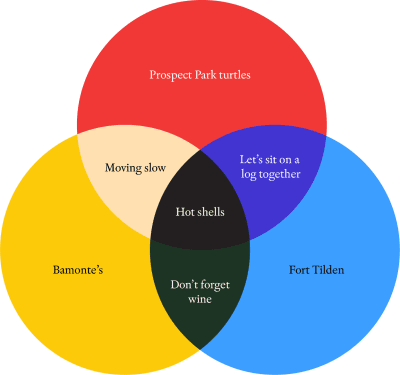Worst Year: A Room Without Windows
I was once on a plane in which one of the engines failed and we were forced to make an emergency landing. They tried very hard not to use the word “emergency,” although they did tell us while we were still in the air that the engine had failed. The pilot attempted to sound reassuring, but as we began our unsteady descent, a flight attendant got on the loudspeaker and, in lieu of any of the usual speech about seatbacks, tray tables, and cell phones, simply said: In the event of an emergency, leave everything.
Like so many terrible things, my worst year started with a Facebook message. The danger of the Internet is that it seems to promise nothing will ever be left undone, that every loose end can be raveled into coherence. In truth there are stories that are better unfinished, and the ability to lose things and let them disappear is often a kindness. Someone I thought I was never going to see again appeared in a neat box of text asking me to get a drink, and it felt like everyone who had said you could never go home again had been wrong. I got a drink, and I got another drink and then I spent the next year getting a drink, proceeding through a series of smaller and smaller doors to darker and darker rooms, until we had successfully hidden one another from the sunlight, until no one was ever going to find us. When I had first known him, when I was a teenager and he wasn’t, I had never known how to make myself important to him. I was older now, and I understand that there is a type of person to whom all you need to do is say yes again and again, to pose as a counter-argument to the larger world’s strictures and refusals. For a year I said yes to everything.
There is a certain kind of toxic relationship that you enter not with any better hopes, but with the absolute certainty that the relationship is toxic, not in spite of its poison but on the promise of it. The relationship was a room without windows, as though a whole year could be a long, ripe-smelling Sunday afternoon spent on the couch watching television and eating things that want to kill you. People we know are bad for us offer a place to hide. If we locate enough concentrated pain, then the world reduces down to merely the perimeter of that pain. We are no longer responsible for all the exhausting and capacious logistics of happiness, all its wide rooms and bright spaces, all the things it insists be kept clean.
Losing love is not in itself a particularly big loss, regardless of how it feels at the time. Losing a person who walks away, who does not love us back, who chooses to love someone else, this is not in point of fact such a huge loss as compared to almost every other loss of which we are capable. Disease and death and financial or natural disaster, all of these are far greater realities than the simple loss of access to the small brightly lit rooms containing only yourself and the mutual beloved. Perhaps that’s why heartbreak is the loss that has achieved greatest ubiquity, the one whose sharing and recounting is a social form by which we build friendships.
But it is also never the loss of one person that accounts for what we mean when we say we had our heart broken. It’s instead the damage that happens 50 and 100 miles from where the storm hits, the friends I alienated, the family I pushed away and embarrassed, the way I let my life sink into a luxurious swamp of yes. It’s the way love itself can become like a trap from which we have to chew off our own arm in order to escape. That year was the emergency and I left everything behind in it.
The aftermath was like being violently and purgatively sick. I cried for two weeks, and because nothing seemed pleasurable and therefore it cost nothing to do what might be considered less than pleasurable things, I started getting up at six everything morning, eating rigorously well, going to bed early, and not drinking at all. I finished projects I had put off, reconnected with old friends, and one small step at a time put my life in order in a way I had avoided for years. In the dullness of grief it seemed easy, because nothing mattered enough to feel difficult. I didn’t mend the heartbreak—I couldn’t do that. I was still comprehensively heartbroken, and remained so even after I no longer actively hurt. The heartbreak just went to live permanently in a smaller and less central location. Rather, because I could not fix the heartbreak, I methodically fixed all the other things that I had been using the relationship to avoid.
After that year I was suddenly afraid of things. I was afraid of airplanes, and cabs, and driving in cars, and high-risk recreational activities. I was afraid to cross the street against the light. I walked around in the new bright January cold breathing in huge gulps, as though I had discovered more oxygen than previously unavailable, and I was scared of everything. The day-to-day world is full of things that logically should kill us, and through some nonsense manage not to. Fear can be a form of gratitude. To fear the loss of things is to affirm that they are worth our love, it would matter if we lost them. This fear is a reminder to turn away from hiding places, to let stories be unfinished, to turn toward consequences as toward a source of light.
Helena Fitzgerald is a former editor of, and frequent contributor to, The New Inquiry. In addition, she has published fiction and nonfiction in many other places. She can be found on Twitter.
You might also like 




















